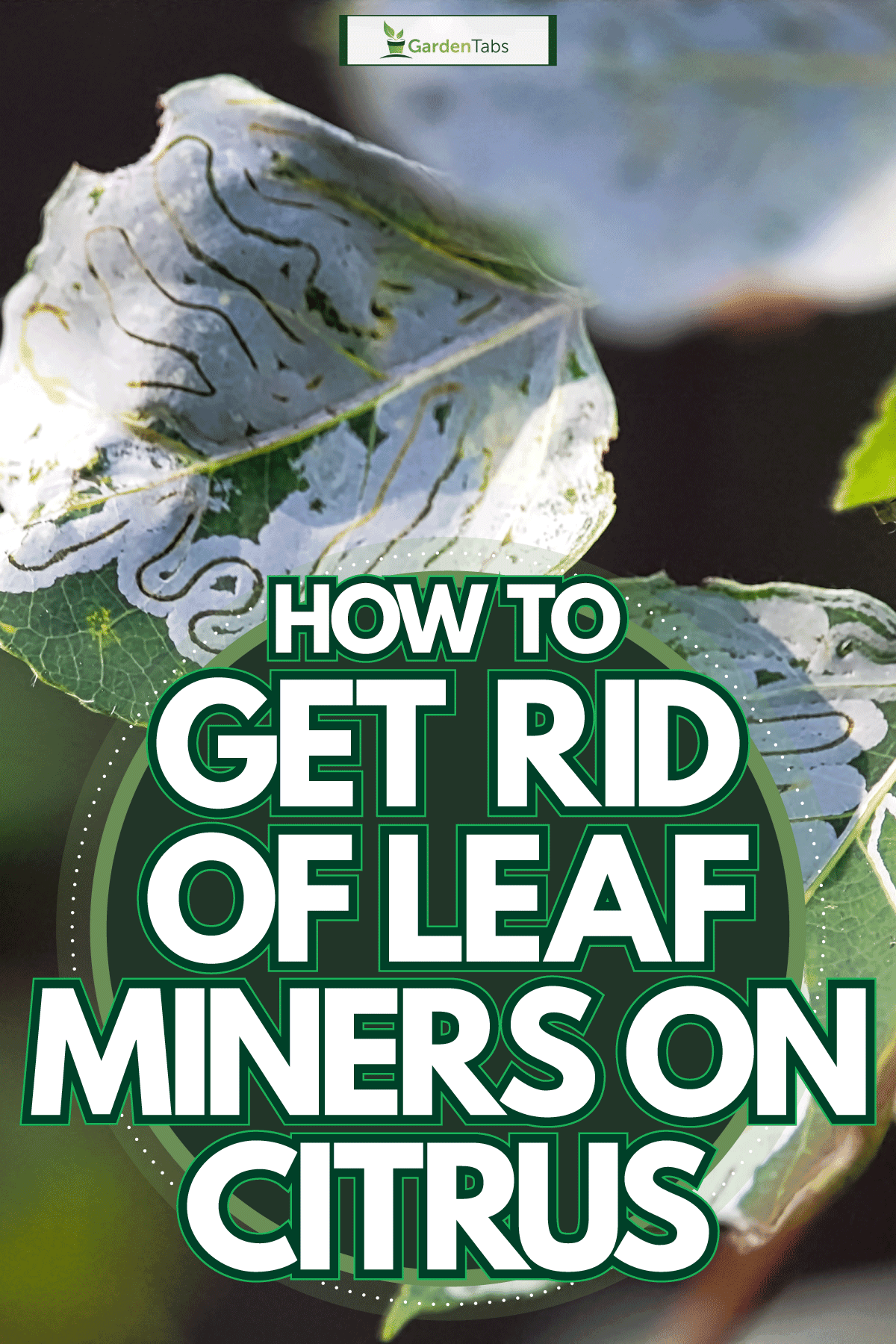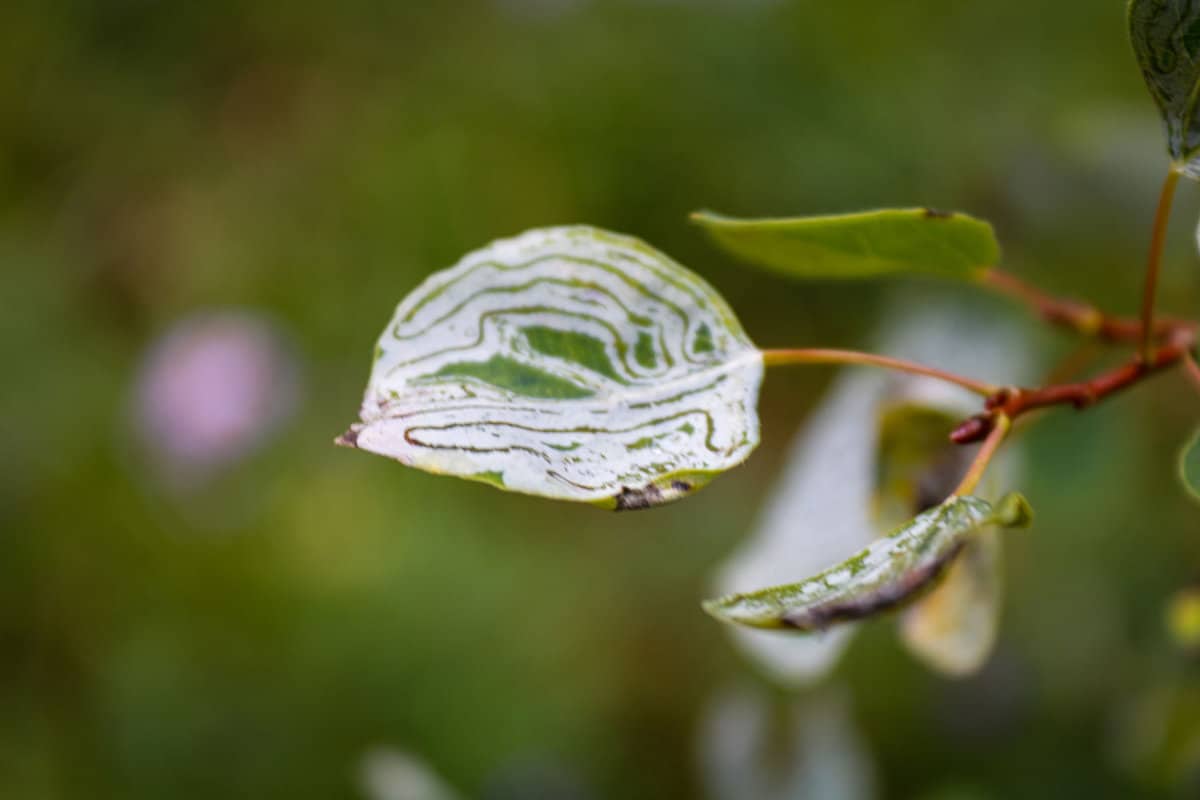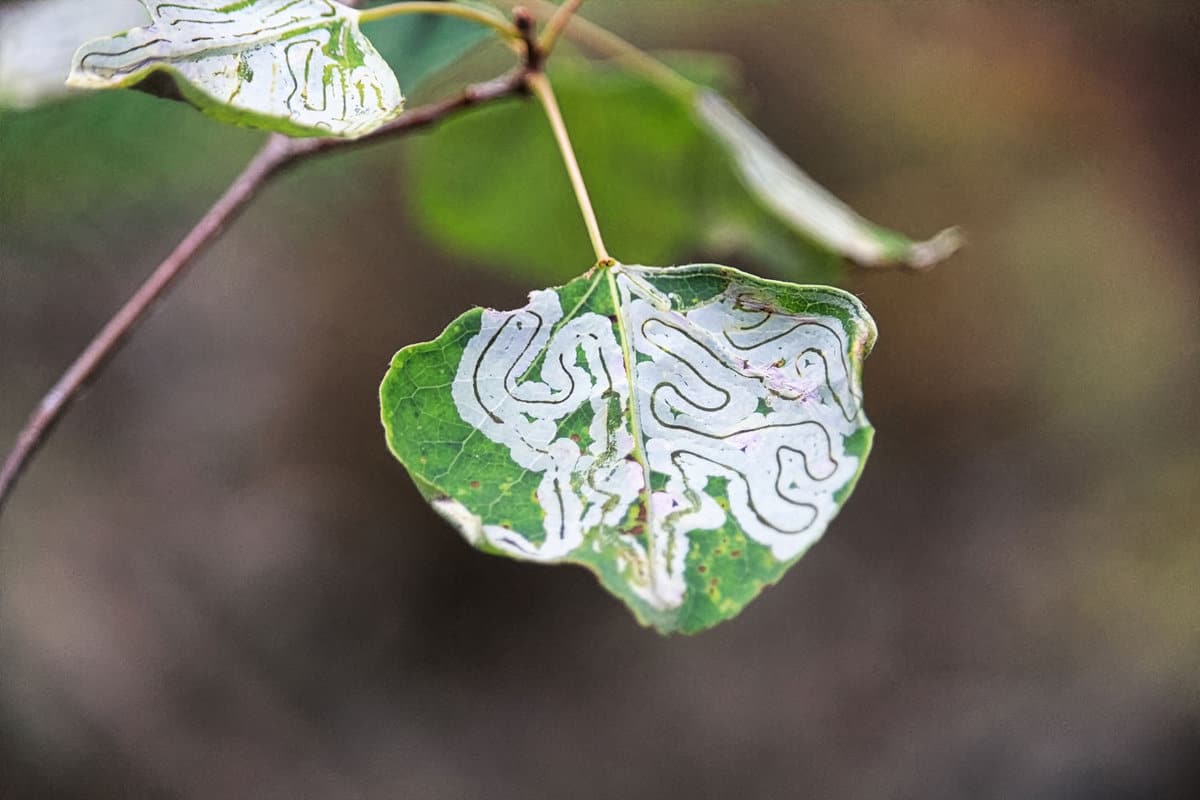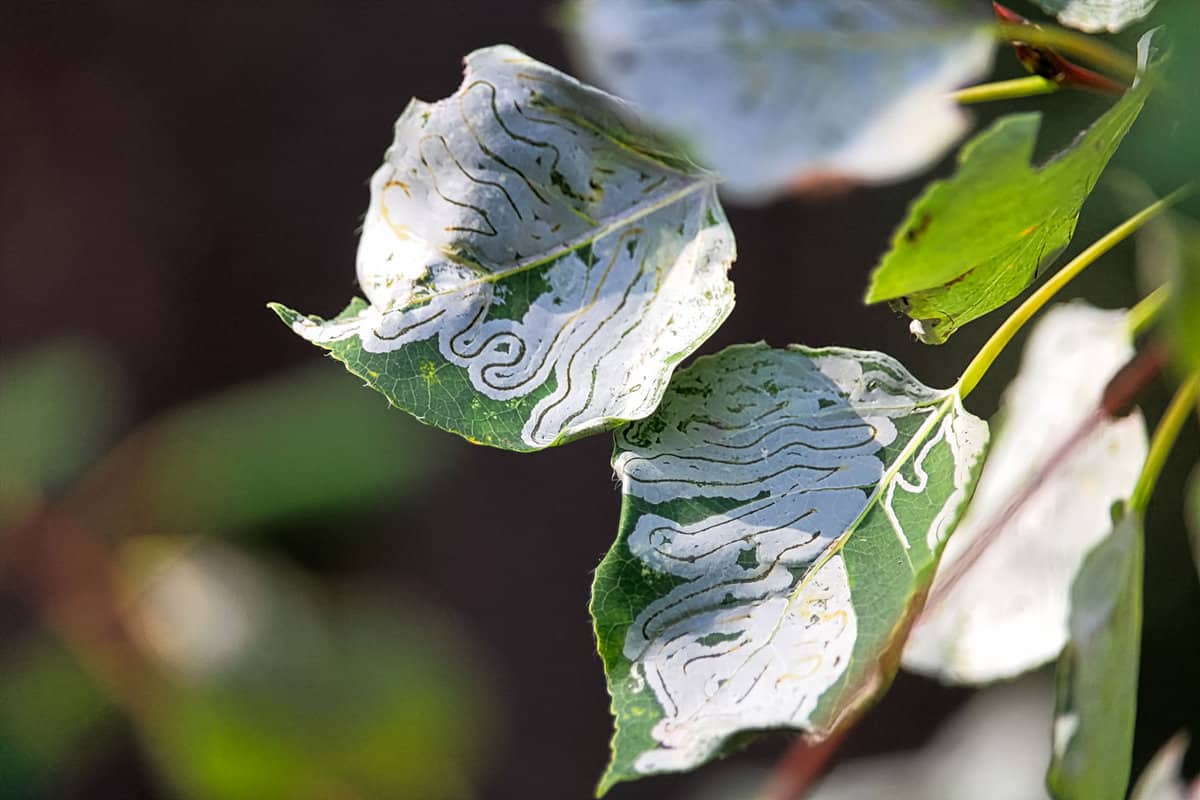Realizing that your favorite plant has a pest problem can feel like the end of the world. Have you started noticing leaf miners on your citrus shrub/tree and don't know what to do? What is the best way to eliminate these pests without damaging your plant? Well, we have the answers below!
For those struggling with leaf miners, there are many ideas to try. First, you want to use a product with imidacloprid on your citrus. A popular one is Bayer Advanced Fruit, Citrus, and Vegetable Insect Control.
From there, you want to spray this all over your citrus, which should prevent the leaf miners from returning.
Furthermore, there are countless other methods for doing this, including hot pepper spray, neem oil, sticky traps, and many more.
As we begin, we will cover all things removing leaf miners from citrus plants. Whether this happens regularly or you just started to notice, we're here to offer some guidance. With that said, let's dive right into this topic!

Why Are There Leaf Miners On My Citrus Plant?
For those noticing damage to their citrus plants suspecting its leaf miners, this is very common. Typically, these tiny moths will lay eggs under the leaves of a citrus plant.
When the larvae hatch, it burrows into the leaf. That can become problematic for a citrus shrub or tree, ultimately taking nutrients.

The leaf miners have their name because they will tunnel around the plant's surface as a miner would.
One of the easiest ways to tell a leaf miner is present is to look underneath the foliage on your citrus. If you see white, silvery winding pathway's around it, you've got an infestation.
Although these pests aren't only attracted to citrus, they enjoy its structure and smell. Unfortunately, this can lead to leaf loss, fruit loss, and even dead sections.
There are various ways to get rid of and prevent leaf miners, which we will cover below.
How Do I Get Rid Of Citrus Leaf Miners?
One of the easiest ways to get rid of a leaf miner infestation is to use a product with imidacloprid. This ingredient is a synthetic insecticide belonging to a class of chemicals used for killing pests.
Think of this as a way to stun the leaf miners, ultimately shutting down their nervous system altogether.
Although that sounds pretty vicious, the chemical doesn't harm the bugs as you'd think. It's more like a quick death that they don't feel.
According to the UGA Cooperative Extension, Bayer Advanced Fruit, Citrus, and Vegetable Insect Control are one of the better products for repelling and killing leaf miners.
You can also try using a more natural product, like Foliar sprays of raw materials such as azadirachtin. Again, this comes down to your preference, although the harsher chemicals will do the job quicker.
When you find a product for leaf miners, spray the entire plant with it. You need to drench any affected areas with the insecticide, so the miners will die and any larvae.
Remember, bugs produce many eggs at a time, meaning a minor issue can soon become life-threatening for your plants.
Bayer Advanced Insect Control
This multi-purpose insect killer is an 8-11-5 formula, protects plants for eight weeks, includes a fertilizer, and has a spike design.
What Are Some Natural Ways To Get Rid Of Leaf Miners?
If chemicals aren't your thing, we get it. Luckily, there are countless chemical-free ideas for removing leaf miners in a garden.
These often include:
- Use a hot pepper spray.
- Neem oil on any affected areas.
- Placing ladybugs, lacewings, and soldier bugs on your citrus.
- Purchasing plant covers to suffocate the bugs.
- Setting sticky traps around your plant.
- Pruning leaves where leaf miner larvae are present.
- Spray 'Spinosad' around your citrus shrub/tree.
- Release parasitic wasps near your citrus (be careful).
On top of these ideas, you can also till the soil around your citrus, which will kill any larvae. The best way to stop an infestation is to start at the source: the eggs.
You can use chemicals or go a chemical-free route, but you may have to get creative.
Pure PetraTools Neem Oil
This neem oil is 100% natural, cold-pressed, has a high Azadirachtin content, works for killing pests, and comes in a 34-ounce bottle.
Follow this link to see it on Amazon.
Can Leaf Miners Kill A Citrus Plant?

Although this mainly applies to younger citrus plants, leaf miners can stunt their growth and kill them. However, that isn't as likely if you have a more mature citrus shrub or tree with leaf miners.
In general, leaf miners' primary source of aggravation is their damage to your citrus foliage. As we said, this will be a white/silver trail around your citrus leaves, which can be ugly to look at.
Furthermore, leaf miners can take nutrients from your plant. That can lead to dead sections, which, again, is unsightly. So if you start to notice discoloration or white trails, grab an insecticide.
That especially applies to new citrus trees and shrubs (under 1-2 years old), as too many leaf miners can become a more serious issue.
Gardening Know How claims that removing leaf miners from young and mature citrus will improve their overall health, which is always something beneficial.
Do Leaf Miners Spread Fast?
Most times, leaf miners will spread quickly once they find a host plant. Typically, you can expect leaf miner's to find a spot on your citrus and make it their permanent home.
Once enough bugs do this to a plant, a more substantial nutrient loss occurs. Although leaf miners aren't technically 'rapid spreaders,' they will lay their eggs where they live.
According to Planet Natural, in most places, there are multiple generations per year living and reproducing on the plants they call home.
As a larger population of leaf miners develops, that leads to more foliage damage. You could even see entire sections of leaves eaten or "mined" through.
This is somewhat common, regardless of plant species, so leaf miners are certainly equal opportunity squatters.
Should I Remove Leaves Damaged By Leaf Miners?

Yes! You want to remove damaged leaves as soon as you see them. Generally, the faster you take off affected leaf miner territory, the better that will do to save your citrus.
Remember, this is not only ugly to look at, but these critters are also eating your plant's foliage for breakfast, lunch, and dinner.
Especially for smaller citrus, allowing the bugs to repopulate and spread throughout your plant's different leaves and levels can be detrimental to its overall health.
Grab a pair of gardening shears/scissors and cut them away to remove the problem areas. You can also pull off each leaf individually, although you might accidentally touch a miner.
We recommend wearing gardening gloves, so your hands won't get sticky from the pest's tunnels/residue.
What Happens If Leaf Miners Go Untreated?
Suppose you overlook the leaf miners on your citrus plant for a while. What will happen the longer they nest on your precious plant?
Generally, the more leaf miners a citrus shrub or tree has, the less healthy foliage it will show. Considering that the unwanted guests need to feed themselves, your citrus leaves are the number one target.
You may notice this start as discoloration on the citrus. White or silver trails around the underside of affected leaves are the first visible sign of an infestation.
From there, you should start to see pieces eaten from your foliage. That will only worsen with time.
The best way to combat this is to spray a miner-specific product onto the leaves and stems of your citrus, which should quickly kill them.
However, it's not always effective the first or even second spray. You need to drench your citrus plant in the pesticide or natural product (depending on your preference).
Do this multiple times, even 1-2 times each week, until your plant looks leaf miner-free.
Once the bugs are dead or long gone, you will need to keep up with routine maintenance. Just because you got rid of the miners, for now, doesn't ensure they won't return next season.
How Long Do Leaf Miners Live?

On average, a leaf miner will have a short lifespan. This is typically around 30-40 days.
During this time, leaf miners will find a host leaf to eat and live on, ultimately eating through it before dying. Additionally, leaf miners reproduce during their month-long adventure, which can mean multiple generations living and dining on your citrus.
According to UConn Home & Garden Education Center, it's likely for your plant to see/host 3 to 4 overlapping generations per year, which is crazy to think about.
Imagine all of the affected sections of your citrus if you leave it untreated. That can be deadly for a newer shrub or tree, so time is of the essence.
Luckily, if you use an insecticide with the proper ingredients and chemicals, you should be able to stop the infestation and breeding ground from expanding.
To Finish Everything Up

Whether you have one citrus growing in your garden, or even ten, it's essential to protect them from pests. From what we found, leaf miners don't do well if you use imidacloprid on them, so that's what we recommend for getting rid of any.
Additionally, you can try spraying the affected citrus with a hot pepper spray, neem oil, and Spinosad, among countless natural remedies. You can even try releasing ladybugs onto your citrus so that they can eat any leaf miners that are present.
Regardless, keep an eye on the bottom of your plant's leaves, and don't be afraid to drench citrus in a product if the infestation becomes unmanageable.
Made it to the end? Check out these helpful plant posts below!
Should You Remove Leaves With Leaf Miners?


